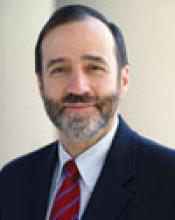Dr. Barbieri reports no financial relationships relevant to this Editorial.
Heightened controversy over the US Food and Drug Administration-approved vaccine against human papillomavirus (HPV) has made headlines in the medical literature and across the lay press in past weeks. What are we clinicians to make of the discussion, 3 years after FDA approval? What can we know with reasonable certainty about the vaccine and its role in the care and well-being of our patients?
First, here are three conclusions about the HPV vaccine that I accept, and that I urge you to accept, too—for the good of protecting your patients against cervical cancer. Second, here is what I know that leads me to those conclusions.
Concluded: Good science stands behind the HPV vaccine
Dr. Harold zur Hausen was a cowinner of the Nobel Prize in Physiology or Medicine in 2008 for the discovery that oncogenic HPV types cause most cases of cervical cancer and many cases of vaginal and vulvar cancer. Th is important discovery was followed by delineation of the natural history and molecular mechanisms of virally induced cervical cancer and by development of vaccines against HPV.
Concluded: The HPV vaccine is effective
Th e FDA approved a quadrivalent vaccine (Gardasil; Merck) against HPV types 6, 11, 16, and 18 in June 2006. In part, the agency’s approval was based on studies of approximately 20,000 girls and women, half of whom received the vaccine and half who received a control injection. Th ese studies demonstrated that, in women who had not been previously infected with these viral types, Gardasil was very effective at preventing 1) precancerous changes linked to cervical, vaginal, and vulvar cancer and 2) genital warts.
In September of this year, an FDA panel reviewed the efficacy and safety of a bivalent HPV type 16 and 18 vaccine (Cervarix; GlaxoSmithKline) and recommended that it be approved by the agency. Cervarix will likely be available next year.
Concluded: The HPV vaccine is as safe as any other vaccine
In August, the Centers for Disease Control and Prevention (CDC) published its analysis of 12,424 reports of adverse events following immunization with Gardasil.1 In comparing the frequency of HPV vaccine adverse-event reports with reports across different immunizations, the CDC identified two adverse events that occurred more often with Gardasil: syncope and venous thromboembolism.
First, it’s unclear what mechanism underlies an association between syncope and vaccination.
Second, an association between venous thromboembolic events and vaccination could be due, in part, to a woman initiating estrogen–progestin contraception in a period that overlaps the span of the three Gardasil injections. Here’s an example of how causation for that adverse event can be misassigned.
Illuminating case. In my practice area, there was a report recently of a young woman who consulted a gynecologist after beginning sexual intercourse. She started an estrogen–progestin contraceptive and received three Gardasil shots.
Subsequently, the woman suffered trauma to her calf and, in short order, developed deep venous thrombosis (DVT) and pulmonary embolism. Testing revealed a genetic predisposition to thrombosis: She carries the prothrombin 20210A mutation.
Clearly, Gardasil did not cause this woman’s DVT; contributors to DVT and to the pulmonary embolism were a genetic predisposition to thrombosis, calf trauma, and an estrogen–progestin contraceptive. In the CDC’s safety report, most women who suffered DVT were either taking an estrogen–progestin contraceptive or smoked cigarettes—two clear risk factors for DVT.1
Experts say “Yes.” Most professional associations of expert clinicians and investigators support vaccination against HPV because Gardasil is effective and safe. ACOG, for example, and the American Society of Colposcopy and Cervical Pathology (ASCCP), the Society of Gynecologic Oncologists (SGO), and the American College Health Association all support HPV vaccination in appropriate clinical settings.
Concern over vaccine safety persists in the community
Some parents of autistic children believe that childhood vaccinations may contribute to the development of autism. Thorough investigation of the issue by many scientific panels led all of them to conclude that evidence does not support such a link, but some consumers remain concerned.
It is always possible to raise the concern that “we don’t know every possible risk of a vaccine, so we should be cautious using them.” It is also easy, and common, when considering vaccine safety, to misinterpret associated events as causally-linked events. When, as I noted, a woman initiates sexual activity, it is plausible that she simultaneously begins taking an estrogen–progestin contraceptive and is vaccinated against HPV. Side effects associated with the contraceptive could be misinterpreted as caused by the vaccine.


